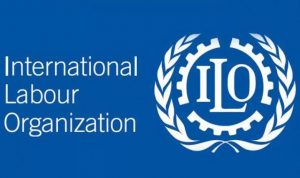World Social Protection Report: ILO

International Labour Organization report titled ‘World Social Protection Report 2020–22’ has revealed that, globally 4.1 billion people are living without any social safety net of any kind.
- The report highlighted that the pandemic response was uneven and insufficient. Thereby, Covid-19 has further underscored the critical importance of achieving universal social protection.
- ILO is a specialized agency of the United Nations.
- It is the only tripartite UN agency.
- It brings together governments, employers and workers of 187 member States, to set labour standards, develop policies and devise programmes promoting decent work for all women and men.\
Highlights of the Report:
- Global Population with Social Protection: In 2020, only 46.9% of the global population benefitted from at least one protection under the ambit of social security.
- Challenges Put Forward by Covid-19 Pandemic: Pervasive challenges such as high levels of economic insecurity, persistent poverty, rising inequality, extensive informality and a fragile social contract have been exacerbated by Covid-19.
- Persisting Inequalities: There are significant regional inequalities in social protection, with Europe and Central Asia having the highest rates of coverage – 84% of people are covered by at least one benefit.
- The Americas are also above the global average, with 64.3%, while Asia and the Pacific (44%), the Arab States (40%), and Africa (17.4%) have marked coverage gaps.
- Disparity in Social Security Expenditure: Countries spend on average 12.9% of their GDP on social protection (excluding health), but this figure masks staggering variations.
- High-income countries spend on average 16.4%, upper-middle-income countries 8%, lower-middle income countries 2.5%, and low-income countries 1.1%.
- Limited Protection to Women, Children And Disabled Peoples: Globally, the vast majority of children still have no effective social protection coverage – only one in four children (26.4%) receives a social protection benefit.
- Just 45% of women with newborns receive a cash maternity benefit.
- Only one in three people with severe disabilities (33.5%) worldwide receive a disability benefit.
- Limited Unemployment Protection: A mere 18.6% of unemployed workers worldwide have effective coverage for unemployment and thus actually receive unemployment benefits.
- This remains the least developed branch of social protection.
Barriers to Accessing Healthcare: Significant progress has been made in increasing population coverage. - However, barriers to accessing healthcare remain in the form of:
- Out-of-pocket payments on health services, Physical distance, Quality and acceptability of health services, Long waiting times, Opportunity costs such as lost working time, etc.
- This remains the least developed branch of social protection.




